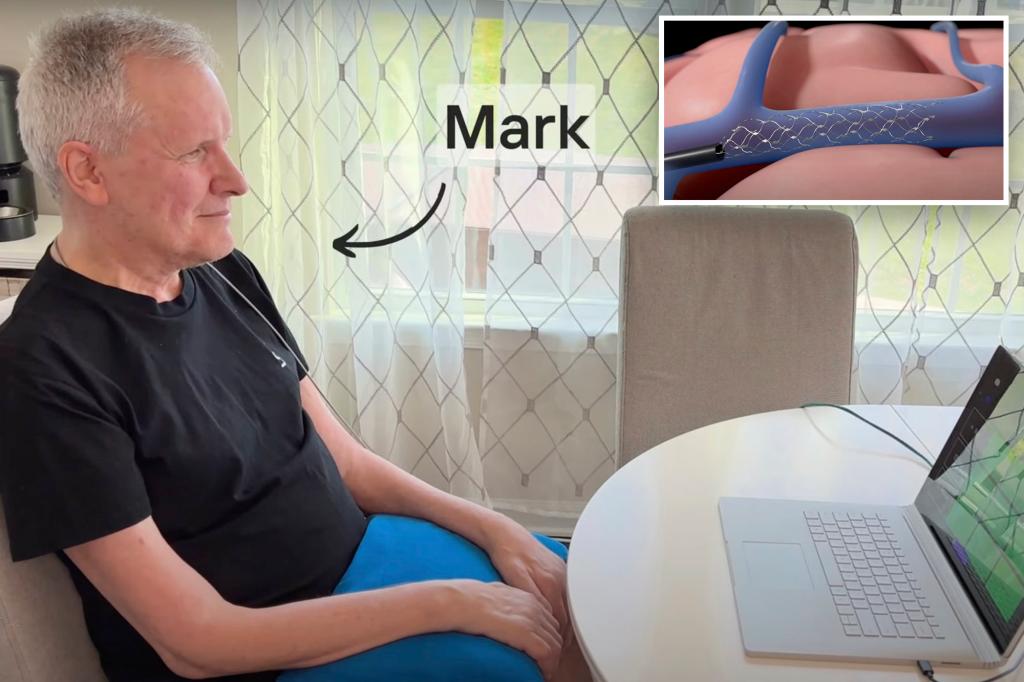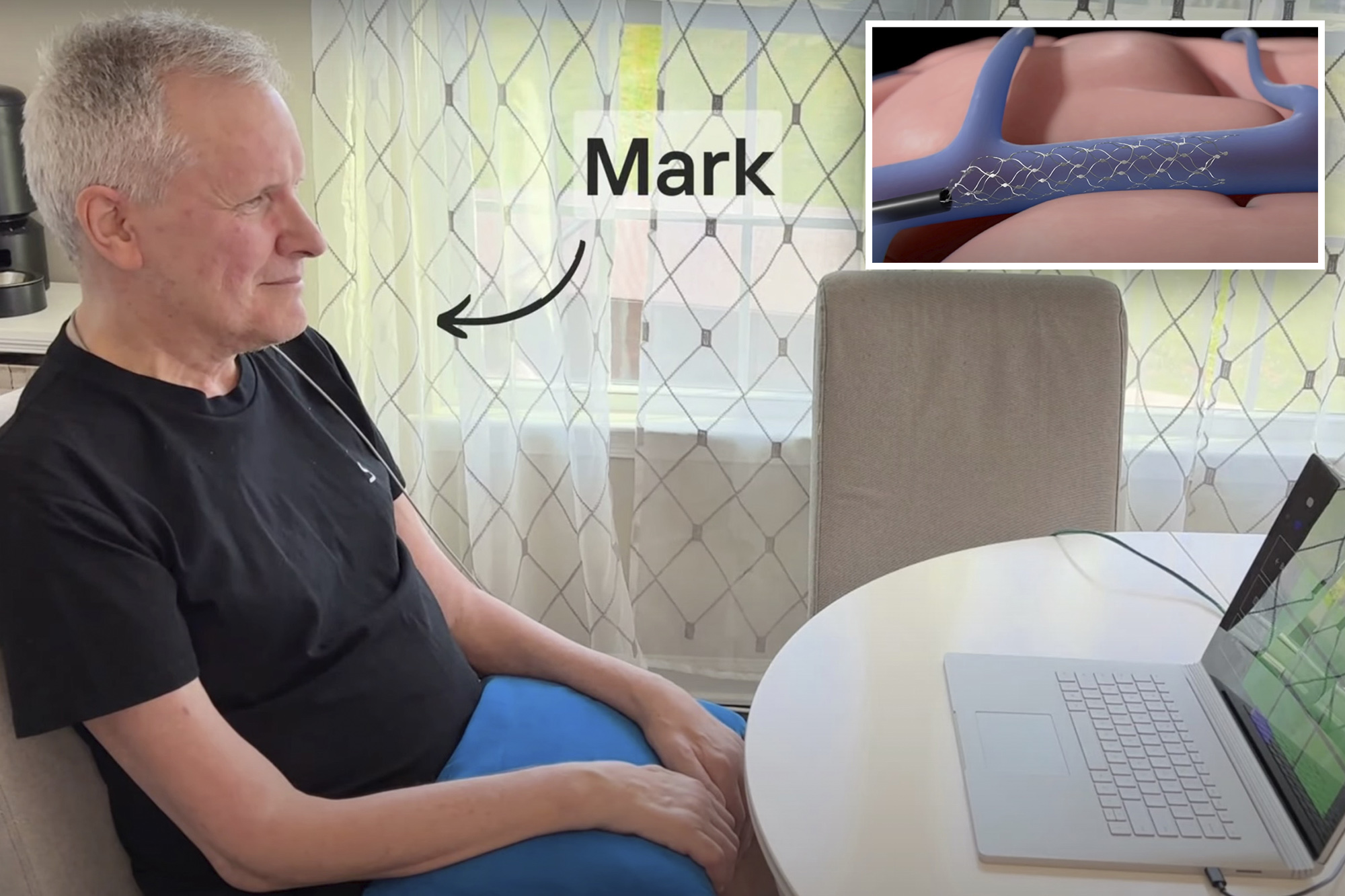Brain implant lets ALS patient control Amazon’s Alexa with thought: ‘Gives me back the independence I’m losing’


A man affected by ALS has become the first person in the world to control an Amazon Alexa digital assistant through his thoughts – thanks to a brain implant created by a New York-based neurotech startup.
Synchron – a company specializing in medical technology solutions – has implanted its brain-computer interface (BCI) into a blood vessel in the brain of Mark, a 64-year-old man living with amyotrophic lateral sclerosis.
ALS (formerly known as Lou Gehrig’s Disease) is a neurological disorder that affects motor neurons, nerve cells in the brain and spinal cord, according to the National Institute of Neurological Disorders and Stroke.
Since implanting the device – which did not require open brain surgery – Mark has become the first person to use his thoughts to control an Amazon Fire tablet.
Mark can stream shows, make video calls, play music, control smart home devices, shop online and even read books by mentally tapping icons on the tablet, the Brooklyn-based company said in a press release. for Business Wire.
Synchron’s BCI was implanted in a blood vessel on the “surface of the brain’s motor cortex via the jugular vein,” which the company said was “a minimally invasive endovascular procedure.”
The implant allows Mark to “wirelessly transmit motor intent” from his brain to “hands-free point-and-click personal devices.”
“The integration with smart technology and my BCI is something I am very excited about. It’s hard to imagine living in our modern world without the ability to access or control connected devices like Amazon’s Alexa and Echo products that are so pervasive in my daily life,” said Mark.
“Being able to manage important aspects of my environment and control access to entertainment gives me back the independence I’m losing.”
By testing this integration with Alexa, the company hopes to expand the possibilities for smart home automation for people with severe paralysis.
“Synchron’s BCI is bridging the gap between neurotechnology and consumer technology, making it possible for people with paralysis to regain control of their environment,” Synchron CEO and founder Tom Oxley said in the press release.
“While many smart home systems rely on voice or touch, we are sending control signals directly from the brain, bypassing the need for these inputs.”
Oxley said the company is “excited to use our BCI to access Alexa’s capabilities” and believes their neurological technology “will address a critical unmet need for millions of people with mobility and voice impairments.”
In August, Neuralink, the neurotech startup owned by Elon Musk, announced plans to introduce a BCI — designed to allow paralyzed patients to use digital devices by thinking alone — in a second human test subject.
Noland Arbaugh, a 30-year-old Arizona man paralyzed from the neck down after a diving accident eight years ago, received the first Neuralink implant in January of this year.
In March, Arbaugh demonstrated how he can use his thoughts to control a computer cursor to play games and email during a live stream on X.
In May, it was announced that the device had suddenly started to detach from Arbaugh’s skull, but that the problem had been fixed.
Musk has predicted that hundreds of people will have Neuralinks within a few years and “millions within 10 years”.
Also in August, researchers at Switzerland’s Ecole Polytechnique Federale de Lausanne unveiled a brain that converts thought to text with 91% accuracy and is even smaller than Neuralink’s chip.
Progress in the industry is happening so quickly that the FDA held a workshop in late September about clinical outcome assessments for BCIs.
#Brain #implant #lets #ALS #patient #control #Amazons #Alexa #thought #independence #losing
Image Source : nypost.com





